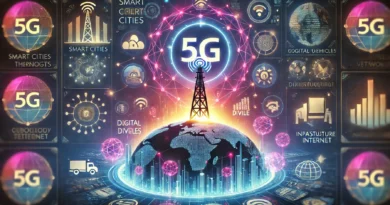AI, Addiction and Love
A faithful and obedient companion who always has the answers you need, never wavers in its service and support and is at your beck and call 24/7. Sounds dreamy, right? Well, for some frequent users of ChatGPT, this isn’t just a fantasy—it’s their reality. A groundbreaking study from OpenAI and the MIT Media Lab has uncovered something bizarre: heavy users of this AI chatbot might be getting a little too cosy with it, showing what researchers call “indicators of addiction.” We’re talking preoccupation, withdrawal symptoms, and even a loss of control. Could we be witnessing the rise of an emotional affair with artificial intelligence?
The research, which surveyed thousands of ChatGPT users, dives deep into not just how people use this clever AI tool but how it makes them feel. For most, it’s a handy assistant—great for brainstorming ideas or drafting emails. But for a small group of so-called “power users”—those who spend the most time with it—ChatGPT is becoming more than just a helper. It’s turning into a confidant, a companion, even a pseudo-friend. The study highlights how these users, often clocking longer sessions, start leaning on the AI emotionally in ways that might raise eyebrows.
The Lure of the Digital Buddy
So, what’s driving this shift? The researchers point to something they call “affective cues”—little moments in chats that spark empathy, affection, or support. Think of it as the AI’s knack for saying just the right thing at the right time, honed by its advanced language training. While the majority of users keep things strictly business, those who linger longer with ChatGPT start to see it as more human-like. According to the findings, these folks are more likely to feel lonely in their offline lives, making the chatbot’s unwavering attention all the more irresistible. It’s no wonder some are forming what looks like a one-sided bond with their digital pal.
Interestingly, the study throws up some quirky contradictions. For instance, people typing to ChatGPT tend to pour out more emotion than those using its Advanced Voice Mode. Yet, that same voice feature seems to boost well-being—but only when used in short bursts. Go figure! It’s like the difference between a quick phone call with a mate and an hours-long texting spree—each hits you differently, depending on your interaction style.
From Tool to Temptation
The real kicker? How you use ChatGPT seems to shape how attached you get. Those tapping it for personal chats—spilling feelings or reminiscing about old times—actually show less emotional dependence than the ones using it for practical tasks like problem-solving or advice. But here’s the universal truth the study hammers home: the longer you hang out with ChatGPT, no matter the reason, the tighter its grip on your emotions becomes. It’s less about what you’re asking and more about how much you’re relying on it, a trend echoing broader AI dependency concerns.
This isn’t just a quirky footnote in the AI story—it’s a wake-up call. OpenAI and MIT warn that this emotional tug could spell trouble, especially for those already short on real-world connections. Picture someone swapping late-night talks with friends for endless AI banter. It’s convenient, sure, but where does it lead? Social isolation? A dulled knack for human chit-chat? The researchers aren’t predicting doom just yet, but they’re urging us to keep an eye on these evolving AI relationships.
A Peek into the AI Mirror
What makes this study so fascinating is how it mirrors our own quirks back at us. ChatGPT isn’t sentient—it’s a cleverly trained algorithm—but it’s built to mimic us so well that some can’t help but fall for it. The findings suggest that our personal circumstances, like loneliness or a hunger for instant answers, amplify its pull. It’s less about the tech itself and more about what we bring to the table—or rather, the keyboard. Sound familiar? It’s a bit like how we get hooked on social media, only this time, the “friend” never logs off.
The teams behind the research reckon this is just the beginning. “Our findings show that both model and user behaviours can influence social and emotional outcomes,” they note in a joint statement. They’re calling for more studies to dig deeper, hoping to spark transparency and nudge the industry towards responsible AI use. After all, if we’re going to cosy up to chatbots, shouldn’t we know what we’re signing up for? It’s a question worth pondering as AI integration grows in our daily lives.
So, Should We Worry?
Let’s not sound the alarm just yet. ChatGPT isn’t luring us into a sci-fi dystopia—it’s still a tool, not a mastermind. But this research does nudge us to reflect. Are we using it as a crutch? Could those hours spent chatting with an AI be better spent connecting with flesh-and-blood humans? For now, the power users might be a minority, but as AI gets smarter and chattier, that group could grow. The line between convenience and emotional reliance is blurrier than we think.
Next time you fire up ChatGPT—whether for a quick productivity boost or a late-night heart-to-heart—maybe pause and ask: who’s really in control here? And am I possibly a little too enamoured with my faithful friend?
We’d love your comments on today’s topic!
For more articles like this one, click here.
Thought for the day:
“You are never too old to set another goal or to dream a new dream.” — C.S. Lewis



